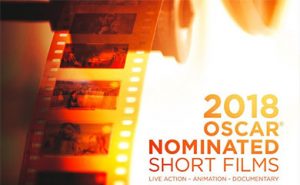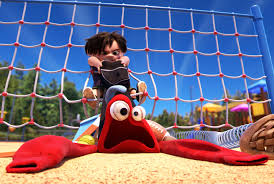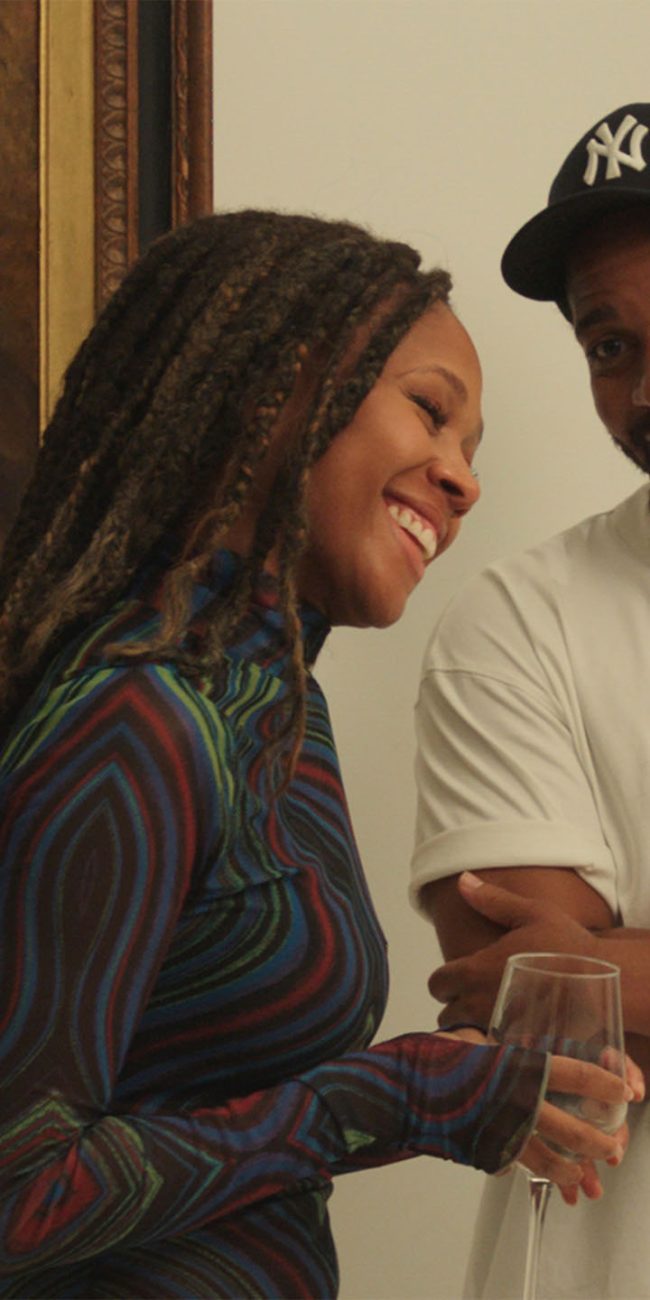2018 Oscar-Nominated Short Films
 Every year, the Academy of Motion Picture Arts and Sciences nominates a total of 15 short films in 3 categories (5 per category): animated and live-action (which share the same set of eligibility requirements), and documentary (with its own requirements, slightly different from the others). The qualifying movies much each be shorter than 40 minutes (though, it should be noted, the documentary shorts push this limit), and must have satisfied certain screening criteria, as per the previously noted guidelines. For over 10 years, a distribution company by the name of ShortsTV has released the nominated films, allowing all to see this frequently fascinating collection of films that often showcase the next generation of talent (but not exclusively, since veteran filmmakers also try their hands at shorts, as well),
Every year, the Academy of Motion Picture Arts and Sciences nominates a total of 15 short films in 3 categories (5 per category): animated and live-action (which share the same set of eligibility requirements), and documentary (with its own requirements, slightly different from the others). The qualifying movies much each be shorter than 40 minutes (though, it should be noted, the documentary shorts push this limit), and must have satisfied certain screening criteria, as per the previously noted guidelines. For over 10 years, a distribution company by the name of ShortsTV has released the nominated films, allowing all to see this frequently fascinating collection of films that often showcase the next generation of talent (but not exclusively, since veteran filmmakers also try their hands at shorts, as well),
As I did last year, I present brief capsule reviews of the films in all 3 categories, in order of my preference within each category. I had trouble choosing a separate 1-2-3-4-5, however, which is why you will see two #1’s (in the case of the animated films), or three #2’s (in the case of the documentaries), etc. This year, I very much enjoyed my favorites in each category, though the two animated shorts I put at the top are by far the most fun, overall. There are some very strong contenders throughout. Here, then, are my thoughts.
1 (tie). Garden Party (Florian Babikian/Vincent Bayoux/Victor Caire/Théophile Dufresne/Gabriel Grapperon/Lucas Navarro, France, 7:22min)
A delightful mix of the comic and the macabre, Garden Party is also beautifully animated, giving us gorgeous images of amphibians and insects frolicking in and around the grounds of a wealthy mansion. As we follow these creatures in their wanderings, we soon realize that something is amiss in their garden paradise. Bullet holes riddle windows and security cameras, while spilled food and drink lie spoiling in the sun, a perfect feast for our animal friends. The sublime, the ridiculous and the gruesome make charming companions, and by the end, we can’t help but laugh at the inevitably morbid conclusion. Great fun!
1 (tie). Lou (Dave Mullins, USA, 6:45min)
The Pixar short that played before screenings of Cars 3 (which I missed), Lou offers a lovely anti-bullying message embedded in a very funny, thoroughly entertaining package. “Lou” is a mysterious creature who lives in the lost-and-found box of an elementary school. He spends his days cleaning up the school playground, then making attempts to return lost items to their rightful owners. When he sees a bully actively threatening the peace, he takes immediate action. What I especially love about the film is that it does not demonize the villain, only his actions, allowing him a cathartic redemption that elevates Lou to the status of a true cinematic gem.
his days cleaning up the school playground, then making attempts to return lost items to their rightful owners. When he sees a bully actively threatening the peace, he takes immediate action. What I especially love about the film is that it does not demonize the villain, only his actions, allowing him a cathartic redemption that elevates Lou to the status of a true cinematic gem.
- Negative Space (Ru Kuwahata/Max Porter, France, 5:30min)
Voiced by Albert Birney (actor/co-director of Sylvio), Negative Space offers a moving stop-motion elegy to a man’s recently deceased father, who taught him the value of efficiency of space, at least as it relates to the packing of a suitcase. Animated in stop-motion. It’s an affecting story, told well, and the animation is artistically rendered. I actually would have liked a little more of it, though what is there is well worth watching.
- Revolting Rhymes (Jan Lachauer/Jakob Schuh, UK, 29:09min)
Almost six times longer than the shortest film in this collection, Revolting Rhymes, with its alternate take on well-known children’s tales (“Little Red Riding Hood” and “Snow White”) has its definite appeal, though the animation, itself, is not one of them. In fact, I found this an almost profoundly ugly movie, all the while enjoying many aspects of the script. It is an adaptation of the book of the same title, by Roald Dahl, with drawings by Quentin Blake (I would have preferred that the movie copy the illustrator’s style). We meet a wolf on a mission – voiced by Dominic West (McNulty on HBO’s The Wire) – determined to right the wrongs visited upon his family, and then listen to his retelling of the stories we thought we knew so well. If only it were more pleasant to look at …
- Dear Basketball (Kobe Bryant/Glen Keane, USA, 5:22min)
My least favorite of the nominees, Dear Basketball plays like a promotional video for basketball great Kobe Bryant and his exit from the sport. Co-directed by Bryant, himself, along with veteran Disney animator Glen Keane, the film has the virtue of visual artistry, if nothing else. I have nothing against Bryant, but I fail to see the need for such a blatant hagiography to be among the precious contenders for the Oscar.
- Heaven Is a Traffic Jam on the 405 (Frank Stiefel, USA, 40:07)
A profoundly moving portrait of artist Mindy Alper, Heaven Is a Traffic Jam on the 405 takes us on an intimate journey through her life and art, using her one-woman retrospective at the Rosamund Felsen Gallery, in Los Angeles, as the main event around which to anchor the story. The title comes from a statement Alper makes early on about how much she loves being stuck in traffic, with its attendant stillness within the enclosed confines of the car, which affords an opportunity to observe other people sitting in their cars. Though we never learn the exact details of the condition (beyond depression and anxiety) from which Alper suffers – her halting monotone of a speech pattern hints at some form of mild autism, perhaps – it is clear that life poses, and has always posed, certain unique challenges for her. Somehow, she has persevered, creating beautiful drawings, paintings and sculptures that are a testament to her artistic and indomitable spirit. With great skill of his own, director Frank Stiefel gives us an inspiring cinematic ode to this remarkable woman.
2 (tie). Edith+Eddie (Laura Checkoway, USA, 29:36min)
One of the saddest films in this collection, Edith+Eddie tells the story of the extremely late-in-life marriage of its titular protagonists, who are 96 and 95, respectively, when we meet them. They live in Virginia, and we learn that, though just recently wed, they met 10 years prior when they each held the same winning lottery ticket. She’s black, he’s white, though beyond  some family issues (on her side), race doesn’t seem a concern. Unfortunately, Edith’s rapidly declining mental health is a problem, and though her Virginia-based daughter wants to keep the couple together, the other daughter, in Florida, wants to bring her mother down there for, she says, better care. Since the siblings can’t come to an agreement, the decision of what to do with mom falls to a court-appointed guardian. What makes the story especially harrowing is the intimacy of the camera, right in the middle of the heartbreaking discussions and subsequent actions. If some of the on-screen text is a little too on-the-nose in its explanation of the situation, the immediacy of the human tragedy is riveting, if also disturbing, and a terrific example of observational cinema.
some family issues (on her side), race doesn’t seem a concern. Unfortunately, Edith’s rapidly declining mental health is a problem, and though her Virginia-based daughter wants to keep the couple together, the other daughter, in Florida, wants to bring her mother down there for, she says, better care. Since the siblings can’t come to an agreement, the decision of what to do with mom falls to a court-appointed guardian. What makes the story especially harrowing is the intimacy of the camera, right in the middle of the heartbreaking discussions and subsequent actions. If some of the on-screen text is a little too on-the-nose in its explanation of the situation, the immediacy of the human tragedy is riveting, if also disturbing, and a terrific example of observational cinema.
2 (tie). Heroin(e) (Elaine McMillion Sheldon, USA, 38:47min) – currently available on Netflix
Another gripping film about a tragic topic, Heroin(e) is set in Huntington, WV, the overdose capital of the United States. Fortunately, this movie offers hope, as well, focusing – as its title suggests – not only on heroin, the drug, but on the heroines who are combatting the opioid crisis. We meet three women, in particular, who are instrumental in trying to save the residents of their city: Deputy Fire Chief Jan Rader, Judge Patricia Keller, and Necia Freeman of the Brown Bag Ministry. Each, in her own way, is hard at work to find a solution to the crisis in their midst. Two of them represent the forces of authority, yet all of them show nothing but compassion – even when their love is stern – towards those who suffer. Though there are moments when the inspirational music lends the movie a slightly promotional tone, Heroin(e) is, overall, a superb treatment of a difficult subject.
2 (tie). Knife Skills (Thomas Lennon, USA, 39:58min)
A much happier story, though one with roots in drug problems, as well, Knife Skills focuses on Edwins Restaurant in Cleveland, OH, where manager Brandon Chrostowski and chef Gilbert Brenot train 80 recently released convicts (most in jail for narcotics offenses) to work in the restaurant business. As early title cards explain, two thirds of all men and women released from prison end up back there after 3 years, mostly because they fail to find a place for themselves in the real world. Recidivism runs high, in other words, because very few opportunities exist for them beyond the ones that sent them to prison in the first place. The first year is the hardest. And so Chrostowski, an ex-con, himself (also for a drug crime), who now looks as clean-cut and business-oriented as any Wall Street executive, runs this program to help out those who, like him, just need a second chance. Not all make it, and we are right there in the middle of the action to see successes and failures, both, but the primary trajectory of this film is towards redemption. Though also a little too much like a promo, at times, the film is still a powerful tribute to empathy and hard work.
- Traffic Stop (Kate Davis, USA, 30:43min) – available on HBO starting February 19th, with an early preview on HBO NOW, HBO GO and HBO On Demand on February 16th.
Though I place this movie last among the documentaries, it is by no means an unworthy contender. It tells the chilling story of an African-American woman, Breaion King, who, in Austin, TX, on July 15, 2015, was pulled over by a white police officer, Bryan Richter for driving 15 minutes over the speed limit. When the subsequent conversation did not go to the much larger officer’s liking, he pulled Ms. King out of her car and slammed her – all 112 pounds of her – down on the pavement. She survived, but not without both physical and psychic injuries, and the film explores the reasons for, and consequences of, the excessive use of force. It is certainly as timely a movie as the aforementioned ones about drug crimes and addiction, and tells a necessary story, but something in the mechanics of it feels less assured, cinematically, then the other movies in this category. It is also the only film here that I felt would be better if shorter, since there is a repetition of content that drags the narrative down. Still, it is otherwise a compelling nominee.
- Watu Wote (“All of Us“) (Katja Benrath, Germany, 21:34min)
Watu Wote takes place in Kenya, and tells a frightening story set against the backdrop of ongoing conflicts in that country and in neighboring Somalia – and between the two – between Christians and Muslims. Jua is a young woman headed north towards the border, to visit her ailing mother, whose bus is attacked by members of the terrorist group al-Shabab. She is  Christian; almost everyone else on the bus is Muslim. Jua has her own complicated history with Muslims, since she blames all of them for the murder of her husband and child, and before the attack on the bus, is quite rude to some of her fellow passengers. But when the terrorists ask the travelers to identify who is Christian, they protect Jua, one woman giving her a hijab to wear. Based on a true story, the film reminds us that we are all human under the skin, no matter our beliefs or ethnic affiliations. Well-acted and shot, Watu Wote is a forceful cinematic paean to global solidarity.
Christian; almost everyone else on the bus is Muslim. Jua has her own complicated history with Muslims, since she blames all of them for the murder of her husband and child, and before the attack on the bus, is quite rude to some of her fellow passengers. But when the terrorists ask the travelers to identify who is Christian, they protect Jua, one woman giving her a hijab to wear. Based on a true story, the film reminds us that we are all human under the skin, no matter our beliefs or ethnic affiliations. Well-acted and shot, Watu Wote is a forceful cinematic paean to global solidarity.
In Swahili and Somali, with English subtitles.
2 (tie). DeKalb Elementary (Reed Van Dyk, USA, 20:24min)
Given the disturbing frequency of school shootings in the United States, it should not surprise that a film on the subject would make it into this category. Indeed, one wonders why there are not even more films – features, as well as shorts – about one of America’s ongoing issues of gun violence. Fortunately, for those who fear that such a movie might devolve into a grisly bloodbath, DeKalb Elementary focuses, instead, on the interaction between the mentally disturbed young man who barges into the school office one morning and the brave administrator who attempts to talk him down. Both Tarra Riggs, as that school official, and Bo Mitchell, as the shooter, are magnificent, delivering taut performances that keep you guessing as to the eventual outcome. Riggs, especially, makes you feel every racing beat of her heart, even while she remains outwardly calm. There are a few moments of script exposition that detract from the overall perfection, but this is still solid filmmaking all around.
2 (tie). My Nephew Emmett (Kevin Wilson, Jr., USA, 19:21min)
Over 62 years ago, a 14-year-old African-American boy, Emmett Till, was tortured and killed in Mississippi after whistling at a married white woman. He was from Chicago, but was visiting relatives down south, and didn’t realize that the more charged relations between blacks and whites in that area might put him in greater danger for such an action. My Nephew Emmett starts on the day of the offense, as Till’s uncle, preacher Mose Wright, offers the boy some cologne, amused at how much he uses to douse himself. It’s a day like any other, until night falls, when the men come. They have guns, but more importantly, they have their white privilege, which they wear like a badge of honor as they drag Emmett away in their pickup truck, promising to bring him back after teaching him a lesson. Beyond that racial nightmare, what is most painful to see is the expression on Wright’s face as he watches his nephew being driven off, knowing that he is powerless to stop it. L.B. Williams, as Wright, delivers a heartbreaking performance, and makes us feel the pain of disenfranchisement. Again, there are a few unnecessarily expositional moments, but this is still a powerful work.
- The Silent Child (Chris Overton, UK, 19:55min)
Speaking of exposition, The Silent Child has lots of it, though it also features a lovely central performance by Rachel Shenton, the screenwriter and therefore the same person responsible for the excessive explanation of the story’s meaning. She plays Joanne, the social worker engaged by a wealthy British family to prepare their youngest daughter, Pip, who is deaf, for her entry into mainstream schools. Neither parents nor older siblings have ever had much time for Pip, but Joanne quickly bonds with her and begins to teach her sign language. For some reason, this provokes violent emotions in the mother, who fears that this will mark Pip forever as “other.” And so begins a contest of wills between tutor and family. As Joanne, Shenton is warm and engaging, and we believe in her blossoming relationship with Pip. Unfortunately, everyone else in the movie behaves like a cartoonish villain, without any clear motivation for their callousness. It’s a mixed bad, then, but Shenton is definitely worth watching.
- The Eleven O’Clock (Derin Seale, Australia, 12:52min)
The lone comedy among the live-action bunch – such a serious, well-intentioned lot – The Eleven O’Clock starts out promisingly before losing much of its appeal through the obviousness of its conceit. A psychiatrist arrives for work in the morning only to find that his usual secretary is absent, replaced by a temp worker. When he asks her about his “11 o’clock,” she looks in the appointment book and announces that it’s a patient who thinks he, too, is a psychiatrist. That man arrives, apologizes for being late, and proceeds to act as if the office is his and that the first man is, in fact, the patient. When he buzzes the secretary and calls her by the wrong name, this only seems to confirm his delusion. If, by now, you see where this is going, then you’ve already figured out the punch line, with over half the film left to watch. The world needs more jokes, but they should be a little funnier than this.
And that’s it! Try to catch at least some of these before the Oscar ceremony on Sunday, March 4.
– Christopher Llewellyn Reed (@ChrisReedFilm)











